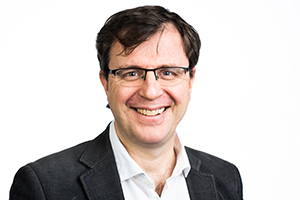Linköping University
Conducting polymer electrodes for high power Vanadium Redox Flow Batteries (VRFBs)
Industrial project
PhD
Open
Research question
VRFBs fulfill almost all the technical specifications for large scale batteries, except one: VRBs provide too low power which limits their implementation. In this project, we aim to perform material research on the electrode/electrolyte interface to boost the power of VRFB and create a new generation of high power VRFBs. The strategy proposed is to use conducting polymers as electrocatalytic coatings on the porous electrodes of VRFBs to boost the rate of electron transfer. We use acid resistant and highly conducting n-type and p-type polymers that catalyze the rate of electron transfer reaction for the two half-reactions coupled to catholytes (V5+/V4+) and anolytes (V2+/V3+). We investigate the mechanism of those reactions with in-operando spectroscopies developed at the industrial partner, Redoxme.
Sustainability aspects
The main SDG coupled to this project is SDG 7: affordable and clean energy. The storage of electricity is the bottleneck to mass implement renewable energy sources. In that context, battery solutions become an important piece of the puzzle on the energy map. One key emerging battery technology is Vanadium Redox Flow Batteries (VRFBs). Technology wise VRFB is considered to have reached “demonstrator” maturity with several large size demonstration plants under development.
A key advantage of VRFB is that the vanadium electrolyte after running many cycles (>30 000) in the battery can be restored at 97% efficiency, which give many lives for the energy storage material (liquid electrolyte) battery compared to the second life considered today for the electrodes in Li-ion batteries. Importantly, for the second life, there is no need to count CO2 emission due to the extraction process, hence multiple life has a strong and positive impact on sustainability.
Redoxme
Pawel Wojcik
R&D
pawel.wojcik@redox.me

Linköping University
Reverant Crispin
Professor
reverant.crispin@liu.se
Explore projects under the WISE program
WISE drives the development of future materials science at the international forefront. The research should lead to the development of sustainable and efficient materials to solve some of today's major challenges, primary sustainability. On this page you can read more about our research projects.
Explore projects